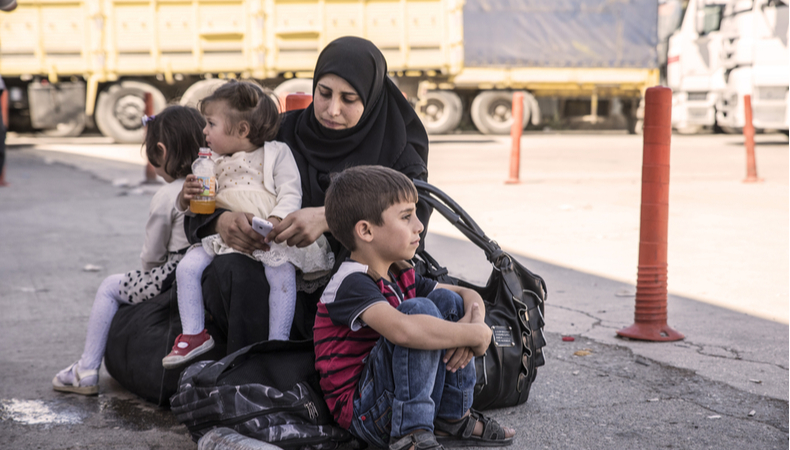First batch of coronavirus vaccines to reach northwestern Syria next month, WHO says

The first batch of coronavirus (COVID-19) vaccines will arrive in rebel-controlled areas in Northwestern Syria next month, the World Health Organization (WHO) announced Tuesday. A spokesperson for the United Nations organization said that “35 to 40 percent of the vaccines will be available during the first half of the year, and that 60 to 65 percent will arrive in the second half of the year.
The Idlib region and its suburbs are expected to receive 336,000 doses, “which would cover about four percent of the total population,” according to the UN agency. Local authorities in the Idlib and surrounding districts, where three million people live under the control of Al-Sham (formerly Al-Nusra) Liberation Headquarters and other factions, have called for vaccinations to the Kovacs platform.Idlib Health Directorate Media Office Director Imad Zahran explained that the first batch will arrive next month and will include 120,000 doses of the British AstraZeneca vaccine, intended for groups most vulnerable to virus infection, like healthcare personnel, people with chronic diseases, and the elderly.
The Kovacs platform, developed by the World Health Organization (WHO) and the Vaccine Alliance (GAVI), allocates a humanitarian reserve for people who are not covered by national plans, especially countries that are experiencing conflicts or divisions such as Syria. The factional control areas in and around Idlib, where hundreds of camps lacking the main drinking water services and sanitation networks are scattered, have recorded over 21,000 cases of Coronavirus, which have resulted in over 408 deaths since the beginning of the pandemic.
The Syrian capital Damascus has counted 13,230 infections in the areas under its control, including 1,001 deaths from complications related to Covid-19, while the Kurdish autonomous administration in the north-east of the country has monitored almost 8,600 cases and 313 deaths. However, according to the WHO, the numbers could be much higher in Syria, due to limited capabilities to conduct coronavirus tests. Political and military division, social stigma, and difficult access to some areas due to conflict are further factors to consider.
Last month, the Syrian government of Bashar al-Assad signed an agreement to join the “Kovacs” initiative through the World Health Organization. Similarly, the Syrian embassy in Moscow announced on Monday that Syria had authorized the use of the Russian “Sputnik-V” vaccine on its soil. No party has announced when the vaccines will arrive in Damascus, nor how the vaccination campaigns will be organized in the area.
The Kurdish autonomous administration is conducting discussions with the World Health Organization to obtain coronavirus vaccines, according to health official Juan Mustafa, but an agreement has not yet been reached. The New York-based international organization Human Rights Watch earlier this month emphasized the need to support international relief groups to ensure a wider and more equitable distribution of vaccines across Syria, including in areas beyond government control.
“Those who provide vaccines to Syria should do everything possible to ensure that the coronavirus vaccines reach the most vulnerable, regardless of where they are in the country,” a Syrian researcher from the organization Sarah Al-Kaiyali said in a report. She recalled that the Syrian government “has never been shy in rejecting health care as a weapon of war”, warning that playing the same games with the vaccine undermines the global effort to control the spread of the virus.




